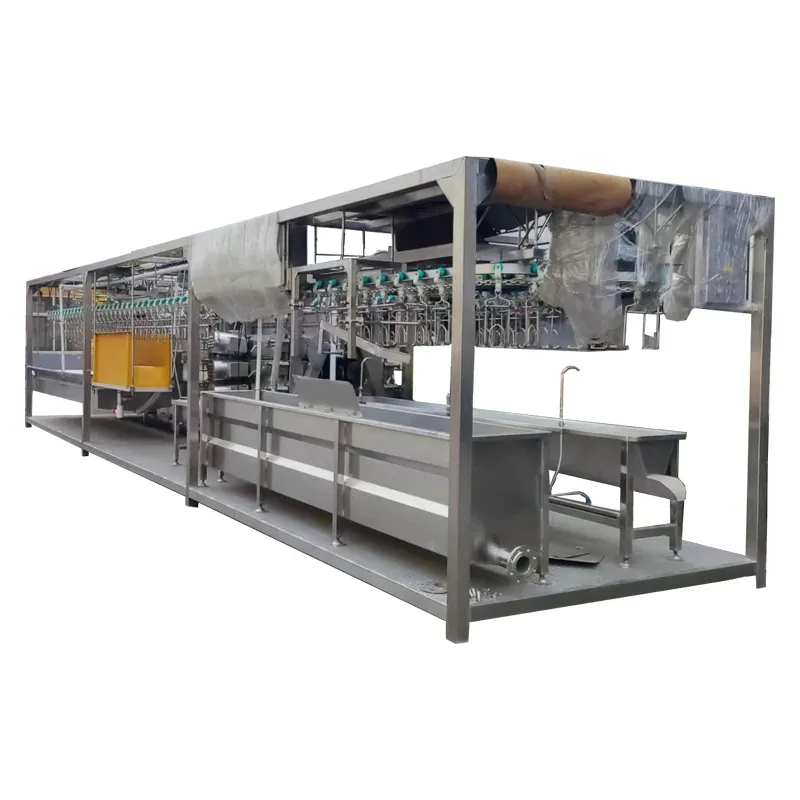Designing Efficient Indoor Pig Pens for Optimal Animal Welfare and Productivity
Dec . 03, 2024 19:25 Back to list
Designing Efficient Indoor Pig Pens for Optimal Animal Welfare and Productivity
The Importance of Indoor Pig Pens in Modern Farming
In the realm of modern agriculture, the welfare of livestock and the efficiency of farming practices have become increasingly crucial topics. Among various livestock management practices, the design and implementation of indoor pig pens have emerged as vital components in the optimal care of pigs. Indoor pig pens offer numerous advantages in terms of animal welfare, biosecurity, and efficient resource management.
One of the primary benefits of indoor pig pens is the enhancement of animal welfare. Pigs are highly social animals that thrive in an environment that allows for interaction with their peers. Indoor pig pens can be designed to incorporate spacious living areas, enabling pigs to exhibit natural behaviors such as rooting, exploring, and socializing. By providing adequate space and enrichment, farmers can ensure that their pigs are not only healthy but also psychologically stimulated, which is crucial for their overall well-being.
Moreover, indoor pig pens significantly contribute to biosecurity. Enclosed environments minimize the risks of exposure to various pathogens and diseases that can affect swine populations. By controlling the conditions in which pigs are raised, farmers can better prevent infections from external sources. The design of indoor pens often includes separate areas for different age groups, which limits the spread of diseases from younger to older animals. Additionally, proper ventilation and controlled temperature can help reduce stress on pigs, further contributing to their health and productivity.
Resource management is another critical aspect that indoor pig pens address effectively. These controlled environments allow for better management of feed, water, and waste products. Since pigs can be kept indoors, farmers can closely monitor their feeding habits, ensuring that each animal receives the appropriate amount of nutrition tailored to its growth stage. This helps in optimizing growth rates and feed conversion ratios, leading to more efficient production and lower costs in the long run.
indoor pig pen

The waste management systems integrated into indoor pig pens are also noteworthy. Using advanced waste collection and treatment technologies, such as deep bedding systems or composting facilities, farmers can manage manure in a way that minimizes environmental impact. Proper waste management not only helps in maintaining hygiene within the barn but also converts potential pollutants into valuable resources. Manure can be composted and used as organic fertilizer, thus creating a sustainable cycle that benefits both the farm and the surrounding ecosystem.
Furthermore, the indoor confinement of pigs allows for more controlled breeding practices. Farmers can implement selective breeding strategies that aim to enhance desirable traits in swine populations. With controlled environments, it becomes easier to monitor breeding cycles and maintain records, facilitating improvements in herd genetics over time. This aspect is crucial for the long-term sustainability and productivity of pig farming operations.
As the global demand for pork continues to rise, it is imperative that farmers adopt practices that not only maximize production efficiency but also prioritize animal welfare. Indoor pig pens present a viable solution by allowing farmers to strike a balance between these competing demands. They provide a safe, comfortable, and controlled environment for pigs, thus enhancing their quality of life and, subsequently, the quality of the pork produced.
In conclusion, indoor pig pens represent an innovative approach to livestock management that aligns with the contemporary needs of the agricultural industry. The combination of improved animal welfare, enhanced biosecurity, efficient resource management, and the potential for better breeding practices makes them an essential feature of modern pig farming. As the agricultural landscape continues to evolve, the indoor housing of pigs will likely play a critical role in meeting both current and future challenges within the industry. By investing in these practices, farmers can ensure sustainable and ethical pork production that benefits both animals and consumers alike.
-
Hot Sale 24 & 18 Door Rabbit Cages - Premium Breeding Solutions
NewsJul.25,2025
-
Automatic Feeding Line System Pan Feeder Nipple Drinker - Anping County Yize Metal Products Co., Ltd.
NewsJul.21,2025
-
Automatic Feeding Line System Pan Feeder Nipple Drinker - Anping County Yize Metal Products Co., Ltd.
NewsJul.21,2025
-
Automatic Feeding Line System - Anping Yize | Precision & Nipple
NewsJul.21,2025
-
Automatic Feeding Line System - Anping Yize | Precision & Nipple
NewsJul.21,2025
-
Automatic Feeding Line System-Anping County Yize Metal Products Co., Ltd.|Efficient Feed Distribution&Customized Animal Farming Solutions
NewsJul.21,2025






